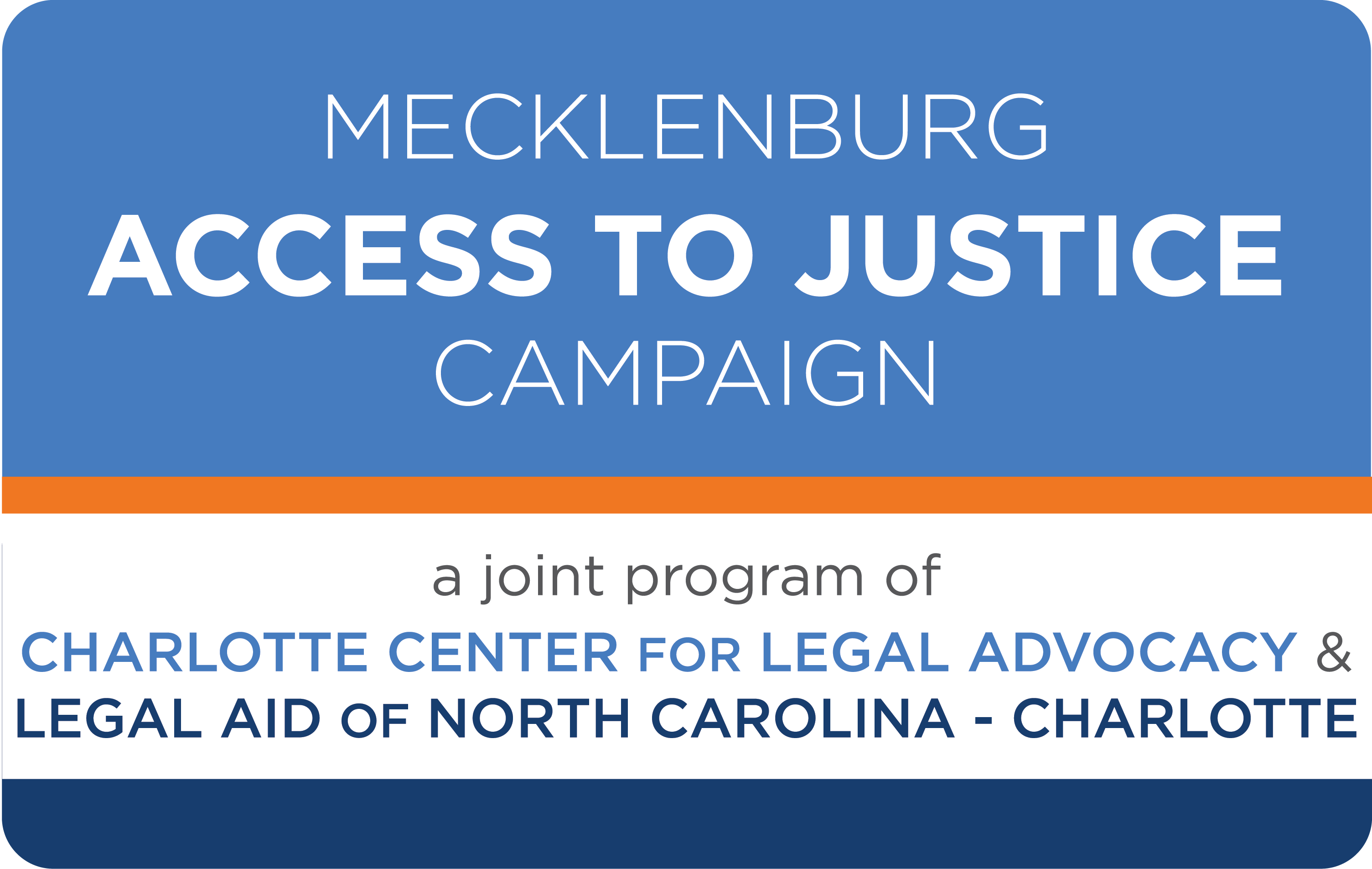
The Access to Justice Campaign is the most stable funding source these organizations depend on to serve the community. The Advocacy Center and Legal Aid use this funding to provide coordinated legal assistance that builds a stronger, more just community for us all.
The campaign raised more than $500,000 last year thanks to the generous support of the community and members of the Mecklenburg County Bar.
History
Since 1989 the Access to Justice Campaign has raised more than $5 million for legal services to low-income people from members of the Mecklenburg County Bar and community supporters. The joint campaign with Legal Aid of North Carolina-Charlotte (LANC) is one of our major sources of revenue for our programs, giving both organizations the flexibility to direct funding to where it is needed most.
Why does Charlotte Center for Legal Advocacy raise money with Legal Aid of North Carolina-Charlotte?
The short answer:
To effectively serve our community. Charlotte Center for Legal Advocacy and Legal Aid of North Carolina-Charlotte have always been Partners in Justice, coordinating services to serve as many people in need while efficiently maximizing community resources.
The long answer:
From the opening of its doors in 1967 to 2002, Charlotte Center for Legal Advocacy (formerly Legal Services of Southern Piedmont) and Legal Aid were one organization. In 1996, Congress imposed service restrictions on organizations that received federal legal services funds. Charlotte Center for Legal Advocacy had been receiving these funds since 1975, but the organization was concerned about how these new restrictions would impact ongoing services to clients.
On July 1, 2002, Charlotte Center for Legal Advocacy reorganized into two agencies. One agency continued to work in the Charlotte area under the current name and chose to give up the federal funds after the transition, which allowed Charlotte Center for Legal Advocacy to continue providing services to low-income people and systemic advocacy work that the funding would have restricted. The other agency became the Charlotte office of a new statewide organization, Legal Aid of North Carolina.
The reorganization enabled both agencies to serve more low-income people in a wider variety of cases than they otherwise would have been able to do, while coordinating services and resources to efficiently serve the Charlotte region.
This partnership makes it possible to assist all groups of clients in Charlotte, especially immigrants, and to systemically address civil legal problems of low-income clients.
For more than 50 years, legal help has been available for low-income people in Mecklenburg and surrounding counties who cannot afford to pay a private lawyer to represent them in civil cases.